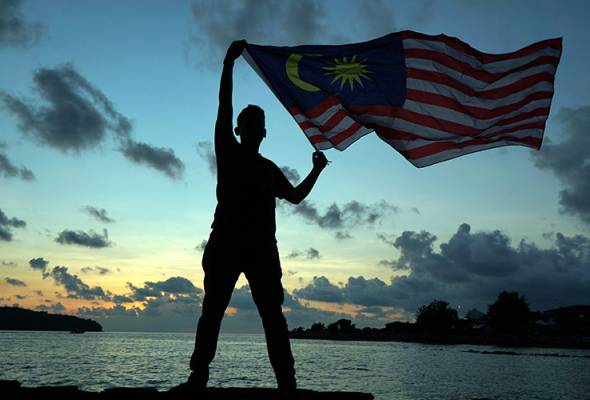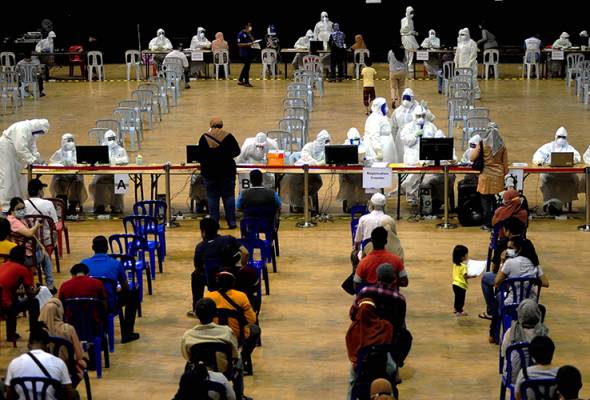
Published in Astro Awani & Asia News Today, image by Astro Awani.
This year’s May 13 anniversary has been a rather muted affair in the media with scant attention given to reminisce about that tragic event and blot in our nation’s history – as is supposedly customary.
Unsurprising, given that our Covid-19 infections have shot up again before that. On May 13 itself, there were 4,855 new cases bringing the cumulative total to 458,077 with 27 deaths. On May 19, it was at an all-time high with 6,075 Covid-19 cases and 46 deaths. Our recovery rate has been fluctuating between 85% to 95% in average with 69.3% out of the total number of positive cases reported in the beginning of the month.
If we are to remember May 13 again, how can we move another step forward – by perhaps exorcising the ghost for good? By that, it’s meant killing off the spectre of May 13 forever so that not only the lessons are learnt, but that we are truly free and liberated from the fear that precipitated that tragic event to happen in the first place.
Is it even possible to do so?
We may well have come to a stage where we can confidently and rightfully assert and affirm that May 13 was one-off and unrepeatable.
But the question remains.
What of the “instinctive” fear – that deep-seated insecurity, gut feeling of distrust/mistrust – which exploded into bloodlust, and finally resulting in violence and mayhem? Can we shake these off from our psyche?
If we can’t, then despite the fact that May 13 is, for all intents and purposes, never going to recur, practically speaking, our society will still be trapped in a thinking that were the pre-conditions of that tragic event.
This means that we could forever be haunted by the spectre of May 13 even whilst knowing that it might not happen again or that the chances are very slim, indeed.
As it is, such “cognitive dissonance”, which can simply be defined as holding contrary/contradictory beliefs and attitudes simultaneously, could be unhealthy and constitute a stumbling block in our quest to build and develop a Bangsa Malaysia.
That said, cognitive dissonance is not necessarily bad all the time.
In fact, it’s a given as we aren’t dealing with abstractions of mathematics, for example, where 2 + 2 = 4 is universally valid in all time and place. Here, the laws of logic are abstracted from experience and real-world reality. And indeed, the former shapes the latter.
In dealing with human relations, paradoxes and existential/experiential tensions (as in contrary/contradictory experiences) are already a given reality. Perhaps, it’s a gift from the Almighty because ironically justice – which applies only in the case of human creatures – and our very existence can never be perfectly applied according to the inflexible and precise laws of mathematics.
Take the example of a Muslim working in a hypermarket that sells liquor and pork. Alcohol and pork consumption are haram in Islam. But in the interest of accommodating non-Muslim customers, both alcohol and pork are sold from within a dedicated section within the hypermarket. The Muslim staff and customers can co-exist with that experience without any rancour or resentment, and yet without any compromise to one’s faith.
No need for politics or for the issue to be politicised. It’s a given reality in the context of our Malaysian society. That’s the way things work, to put it simply.
When it comes to the issue of May 13, though, how do we get rid of contrary/contradictory beliefs – whereby on the one hand, we are “assured” that the tragic event isn’t go to happen again in the future but on the other hand, we are still held back by the same lingering fears?
For one, we can learn a lot from our compatriots from Sabah and Sarawak – where the 1Malaysia has been practiced long before the concept was articulated by a previous Prime Minister. Perhaps, what’s more important is the practice rather than the concept.
This is where social institutions play a critical and effective role.
Social institutions can refer to non-state actors and entities such as the family, a neighbourhood community, an NGO (civil society) or grass-roots organisation of the government of the day.
So, what role do social institutions play?
In “political socialisation”, for example, i.e., the influencing and conditioning of beliefs and attitudes in terms of political support within family circles, peer network and community in general (this last part would be via social media, etc.). See, e.g., “Contemporary Electoral Trends among Malaysian Chinese Voters: Changing Political Socialisation and Orientation in the post 2008 General Election” (2016) by Khadijah Md Khalid and Jason Loh Seong Wei and published in the European Journal of East Asian Studies (Ejeas).
For our purpose, social institutions play the role of socialising (a form of “social engineering”) our society and, in particular, the younger generation to learn from the mistakes of the past (May 13) and move forward boldly with a new set of beliefs and thinking that overcomes the historic impasse – of either/or, i.e., either ethno-religious identity or national identity, for example.
In a scholarly article entitled, “Institution-building, not nation-building: a structural-functional mode” (2011) by Kalu N. Kalu and published in the International Review of Administrative Sciences (Iras), the author persuasively makes the case that “effective [social, grassroots] institutions (including individual [behaviours], norms and values) can provide the structural foundation needed for successful nation-building initiatives. Hence in that order, there should be a redirection of effort on institution-building rather than nation-building”.
Instead of a top-down approach analogous to the trickle-down approach of neo-liberalism, a ground-up “strategy” should be forged, fostered and nurtured so that both social (rakyat-centric) as well as political (leader-centric) institutions can reinforce each other.
Whilst we do need politicians to harp less on ethno-religious issues and do more to articulate and be vocal about national unity, we need people – the rakyat, the grassroots – to “step up” and “step forward” to build and strengthen bridges and inter-ethnic/religious harmony in our daily living.
To be sure, a top-down approach is still needed. We need the political (elected) and administrative elite (unelected) to play their leadership role in steering and guiding our beloved nation towards a Bangsa Malaysia – with a truly national identity that’s stamped on the consciousness of every Malaysian.
With 75 per cent of Malaysians living in urban areas, inter-ethnic interactions are bound to intensify.
Take condominium living, for example.
With condominiums becoming more ethnically mixed reflecting the social progress achieved by the Malays over the years, the role of social institutions would become ever more critical.
Families and neighbours need to reach out to each other and revive the muhibbah spirit. The management corporations (and joint-management corporations) together with the residents’ committees can promote campaigns and activities to build national unity at the grassroots level.
Inter-faith dialogues should be promoted and expanded. In addition to exchange of views, local reading circles from the holy writings of each religion can go a long way in promoting a deeper understanding and appreciation of the other’s faith.
Additionally, the government can solidify and consolidate the formation of the networks, structures and systems of grassroots organisations (federal, state, local). Existing bodies such as the JKKK (Village Development and Security Committees) under the Barisan Nasional which was later substituted with MPKK (Village Community Management Council) under Pakatan Harapan and now known as JPKK (Village Development and Security Committees) under Perikatan Nasional and the RT (Neighbourhood Watch) – are perhaps inadequate to entrench and augment the government’s outreach to the rakyat.
There should be the formation of “citizens’ consultative committees” (CCCs) based on the Singaporean experience and enacted by an Act of Parliament for statutory empowerment that expands and deepens the political “connectivity” between the government and the rakyat. The CCCs would be appointed by the federal government of the day and serve as the umbrella body – at the parliamentary constituency level – that incorporate the JPKK, RT and all grassroots organisations (including NGOs) in the respective localities. CCCs would be managed by civil servants and come under the Ministry for National Unity.
They would act as “centralised” intercessors/mediators between the federal government and the grassroots organisations/bodies. CCCs would not by-pass the state governments, however, unlike regional development authorities of previous years but serve as the federal government coordinator and representative. By adding another layer to the hierarchy in the form of the CCCs, ironically, bureaucratic complexity at the grassroots level can be reduced.
CCCs promote and monitor inter-ethnic/inter-religious harmony and coordinate grassroots support to public campaigns and initiatives on nation-building.
At the end of the day, we need to get rid of the bad cognitive dissonance and strengthen the good cognitive dissonance (through social engineering in the form of social institutions), instead of the other way around.
Then, we can meaningfully exorcise the ghost of May 13, or at the least begin to do so.
Jason Loh Seong Wei is Head of Social, Law & Human Rights at EMIR Research, an independent think tank focussed on strategic policy recommendations based on rigorous research.

